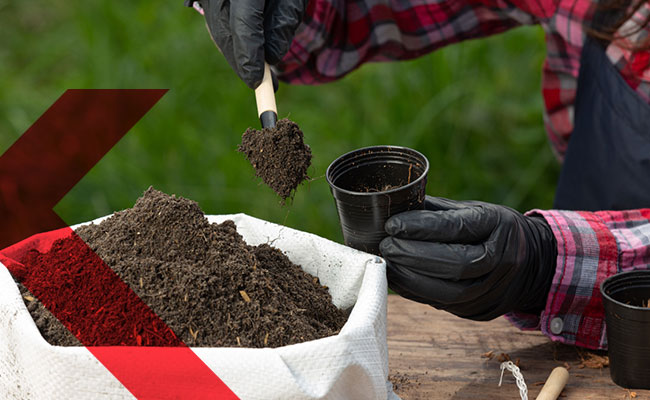Looking for an eco-friendly and sustainable way to boost plant growth and soil health? Nothing is better than biofertilizers! This innovative and exciting technology relies on natural microorganisms to help enrich the soil and encourage superior crop yield.
As farmers and gardeners alike become increasingly concerned about environmental impacts, biofertilizers present an attractive solution to the problems of traditional synthetic fertilizers.
So, dig into the incredible world of biofertilizers and the novel trends that are changing the way we think about sustainable farming.
Rethinking Crop Nutrition with Biofertilizers
Biofertilizers are substances that contain active or dormant microbial cells. By colonizing the plant’s rhizosphere, biofertilizers boost the nutrients of host plants, whether applied to their seeds, plant surface, or soil. Biofertilizers are more cost-effective than chemical fertilizers.
Healthy agricultural production is always dependent on several things, including soil quality, water, fertilizers, skilled labor, and others. Fertilizer is the most important factor influencing agricultural yield.
Fertilizer is a chemical or natural material that helps agricultural production. However, to acquire rapid crop yields, we typically utilize chemical fertilizers, which are very responsive to biofertilizers, but chemical fertilizers are not as environmentally benign as biofertilizers.
5 Innovations Driving the Biofertilizer Industry Growth
Biofertilizers have become the go-to solution for farmers seeking to optimize their yields while reducing their environmental footprint.
With exciting new technologies and cutting-edge research, biofertilizers are paving the way for a more sustainable and environmentally friendly way of farming. Some of the latest developments in biofertilizers include:
1. Nitrogen Biofertilizers by Kula Bio
Nitrogen, as a critical agricultural nutrient, allows plants to maintain essential metabolic activities, produce key tissues and membranes, drive photosynthesis, and impel seed production. Nitrogen biofertilizers are being developed by several startups like Kula Bio, which can address nitrogen deficiency issues in soils.
Microorganisms such as Rhizobia, Azotobacter, and Azospirillum, among others, are used to fix nitrogen in the soil and achieve sufficient nitrogen saturation for more productive crop development. Kula Bio, situated in the United States, is developing a patented bio-fertilization system called ‘Kula-N’ based on active microorganisms and renewable energy.
Their reactor technique is powered by solar energy, which the microorganisms efficiently use to produce and fix nitrogen in the soil. Since it receives adequate energy supply, the solution increases the lifetime of active microorganisms, enhancing the benefits of bio-fertilization.
2. Phosphorus Biofertilizers by Fertoz
Phosphorus in soil helps plants produce essential oils, carbohydrates, and starch, while contributing to proper root growth. Due to insufficient soil solubility, farmers and agronomists frequently fail to utilize the full potential of phosphorus fertilizers. This is where growing firms like Fertoz find opportunities to develop and offer innovative biofertilizers that use phosphorus-solubilizing bacteria (PSB) to help with fertilization.
Fertoz, a Canadian firm, produces granular, micronized, and powdered rock phosphate fertilizers. Phosphate biofertilizers coated with live microbes are one of the most recent developments of the company. This product seeks to improve soil performance by enhancing plant availability and phosphorus solubility. In addition, the company manufactures specialty biofertilizers such as humates, elemental sulfur, gypsum, potash, and biologicals.
3. Algae Biofertilizers by Ficosterra
Since conventional chemical fertilizers have hazardous consequences for food supply chains, agriculture experts are increasingly using natural fertilizers. Blue-green algae, for example, manage soil moisture, aeration, and temperature while also producing helpful plant nutrients.
Many companies are combining different species of algae, such as red or brown algae, with active bacteria to develop new types of sustainable biofertilizers that work as biostimulants to increase production and leverage renewable marine resources.
Likewise, Ficosterra, a Spanish firm, creates the Biological Crop Booster (BCB) technology, which boosts or restores soil fertility. BCB combines the benefits of agarophyte algae with active microorganisms to achieve synergistic soil and water regeneration effects. As a result, the biofertilizer helps balance natural cycles and the ground environment, as well as provides regular nutrients to plants.
4. Vermicompost Biofertilizers by Earnest Earth
Earthworm-mediated vermicomposts provide the soil with high levels of nitrogen, phosphate, potassium, micronutrients, and enzymes that promote healthy plant growth. Since interactions between earthworms and microorganisms promote crop yield, entrepreneurs around the world are attempting to combine the best of both worlds by developing microbe-enhanced vermicomposting biofertilizers.
Earnest Earth, established in the United States, uses its unique biofertilizer to address drought resistance, disease suppression, and soil productivity issues. Earnest Earth’s bioreactors turn agricultural waste from local farms into fertilizer, which is subsequently fortified with specific microbes. In addition, machine learning algorithms are used by the organization to create an optimal blend.
5. Fungi Biofertilizers by Groundwork BioAg
Plants and Mycorrhizal fungi form symbiotic partnerships that allow the latter to effectively absorb and transfer nutrients from the soil to crops, therefore extending vegetation roots. Plants benefit from these natural features not only in terms of growth stimulation but also in terms of immunity to root-cause diseases and resilience to fluctuating moisture or salinity conditions.
To increase natural soil biodiversity, emerging enterprises are experimenting with fungus microbiology in biofertilizer solutions. Groundwork BioAg, an Israeli company, has developed Rootella, a line of mycorrhizal inoculants that aid in soil bio-fertilization.
Its major component, endomycorrhizae, is used to promote nutrient transfer. Overall, Rootella enhances crop output, increases stress resistance, and reduces water and fertilizer inputs.
Going Green with Biofertilizers
Biofertilizers are a game-changer for agriculture and the environment. By harnessing the power of natural microorganisms, these fertilizers have the potential to transform the way we grow crops, improving soil health and plant growth while reducing the use of harmful chemicals.
With the global population on the rise, there’s never been more pressing need to revolutionize the way we farm and produce food. Biofertilizers represent an exciting forward-looking solution that is only set to become more popular and widely used in the coming years.
Whether you’re a farmer, gardener, or just someone who cares about sustainability and the environment, biofertilizers are an investment toward a better future for our planet.


